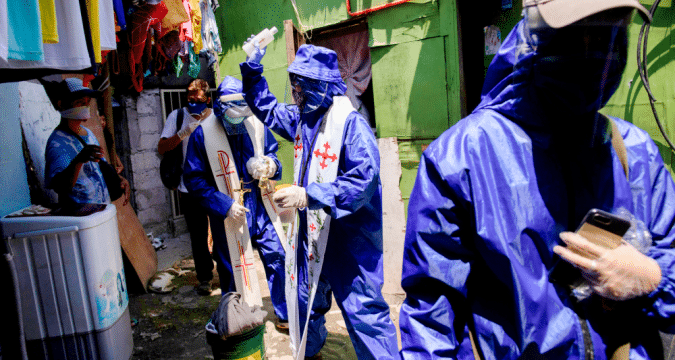
ROME (CNS): “We had hoped the debt payment suspension for the world’s poorest countries would be continued into 2021 given the severity of the crisis,” Eric LeCompte, executive director of Jubilee USA, said in a written statement July 20 after the July 18 virtual meeting of finance ministers and central bank governors from the G20— the group of the 20 major economies in the world.
The finance officials sought ways to boost the global economy and confront the global pandemic and its impact, but the virtual meeting left many debt-related issues unresolved.
“Decisions on further debt payment suspensions, permanent reductions of debt, trillions of dollars of needed aid and extending debt relief to more struggling countries will be left for meetings later this year,” LeCompte lamented.
Advocates had hoped finance officials from the world’s wealthiest nations would have done more to help desperately poor nations further struggling during the Covid-19 coronavirus (SARS-CoV-2) pandemic,.
Instead, participants at the meeting decided those issues would be looked at during a series of meetings in the autumn—with the International Monetary Fund and World Bank in October and another G20 meeting in November.
“For them to kick the decision to the fall (autumn) or to the end of the year is sinful when it is clear millions of people are suffering and even dying as a result of this global health and economic crisis,” LeCompte said in an online interview on July 20.
“We’re incredibly disappointed that they did not even meet our minimal expectations,” he added.
Some of those expectations had been spelled out in a letter Jubilee USA organised in the spring which had more than 200 signatories from major organisations and faith-based communities ahead of the G20 meeting.
Addressed to the G20, the International Monetary Fund and United States president, Donald Trump, it called for expanded debt relief and debt cancellation for developing countries; more aid for countries; new processes to prevent market and financial crises; and measures that confront tax evasion and corruption.
LeCompte said that a lot had been achieved in April when “we won debt cancellation for the 25 poorest countries for six months” and the G20 approved a plan for 73 developing countries to suspend debt payments to G20 countries.
“It wasn’t enough, but it was a start and incredibly important,” he added.
LeCompte said that advocates had hoped the G20 meeting would continue debt payment suspensions into 2021 instead of being stalled for discussion at meetings in the autumn.
The other important initiative that needed action was providing access to the global reserve funds, he said.
“This is the most important decision facing the G20 right now because that has the ability, not only to get money to every country that needs it around the world, but to actually (help) countries emerge with some resilience from this crisis,” LeCompte explained.
He noted that the global reserve funds activated US$250 billion ($1.93 trillion) in 2008 after the financial crisis led to the permanent loss of about 22 million jobs around the world.
LeCompte said that the International Labour Organisation estimates this current crisis will permanently “destroy” 400 million jobs, necessitating an infusion of trillions of dollars from the fund.
Pope Francis has called for forgiveness, or at least a reduction, of the foreign debt of the world’s poorest nations (Sunday Examiner, July 10).
The pope also has established a Covid-19 response commission in the Dicastery for Promoting Integral Human Development to examine the challenges the world is facing in battling the pandemic and what it will inevitably face in its aftermath (Sunday Examiner, May 24).
Among its tasks, the commission is reviewing debt of the world’s poorest countries, joining the plea of Pope Francis and a wide variety of leaders in calling for debt relief—either through the suspension of payments or an outright forgiveness of debt.








